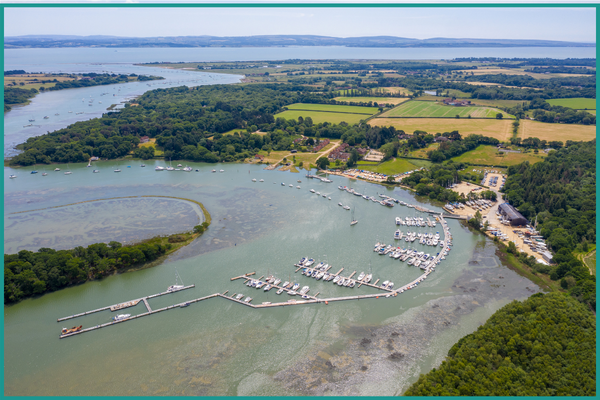
Local Nature Recovery Strategies (LNRS) were brought in under the Environment Act, 2021. Responsible Authorities (usually local authorities) are required to develop them and report on progress every five years.
They are:
LNRS' cover habitats to mean low water, and the Solent Forum is looking at how the marine and coast are best included.
Five areas were selected by the government in 2020 to receive a share of £1 million of funding to set up Local Nature Recovery Strategies’ (LNRS) pilot studies.
Defra guidance states that for coastal local nature recovery strategies are required to follow the relevant local authorities’ boundaries. This usually means extending into the inter tidal zone as far as low water, but can be further around river estuaries. Coastal responsible authorities should consider how to factor in neighbouring marine areas and plans in their strategies. Linking local nature recovery strategies and marine spatial planning would help to identify land management changes that could benefit the estuarine or marine zone. For example, by improving the quality of water leaving river systems or managing coastal erosion risks.
The Solent Forum has been working with partners to help scope the strategic direction of Solent marine and coastal nature recovery. Please see our LNRS Solent Coast and Marine page for further details.
LNRS can support a strategic approach to off-site BNG delivery, agreeing evidence-based locations to expand and connect existing habitat and provide wider environmental benefits. LNRS also play a role in BNG by determining the ‘strategic significance’ multiplier within the biodiversity metric. This mechanism means that there is an incentive for developers to align with the LNRS in their area when choosing the location of off-site BNG units.
The Hampshire and Isle of Wight Local Nature Partnership (LNP) was established in 2012 and is one of 48 strategic local nature partnerships formed in England following publication of the 2011 Natural Environment White Paper. LNPs operate at the county scale.
Its main focus is to:
The Hampshire Biodiversity Information Centre (HBIC) was contracted by Natural England in 2015 to produce a detailed Ecological Network Map for Hampshire on behalf of the Local Nature Partnership (LNP). A draft was produced in 2016 and has since been road tested and updated to reflect changes in site designations and habitat mapping over the intervening period. The map represents the hierarchy of international, national and locally designated sites of importance for biodiversity, plus other priority habitats and, importantly, areas identified for habitat restoration or creation.
In 2021, a new network of nature partnerships in the South East was established. The South East Nature Partnership brings together Sussex Nature Partnership, Kent Nature Partnership, Surrey Nature Partnership, Hampshire and Isle of Wight Nature Partnership. Through this network, it collaborates across the region on common priorities. This partnership meets quarterly and is chaired by the Kent Nature Partnership.